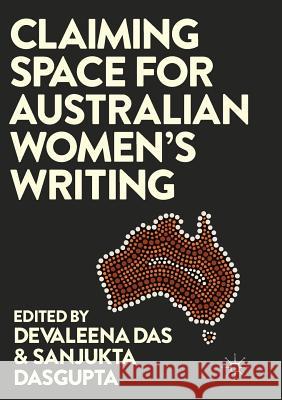Claiming Space for Australian Women's Writing » książka
topmenu
Claiming Space for Australian Women's Writing
ISBN-13: 9783319843919 / Angielski / Miękka / 2018 / 353 str.
Kategorie:
Kategorie BISAC:
Wydawca:
Palgrave MacMillan
Język:
Angielski
ISBN-13:
9783319843919
Rok wydania:
2018
Wydanie:
Softcover Repri
Ilość stron:
353
Waga:
0.44 kg
Wymiary:
21.01 x 14.81 x 1.96
Oprawa:
Miękka
Wolumenów:
01
Dodatkowe informacje:
Wydanie ilustrowane











